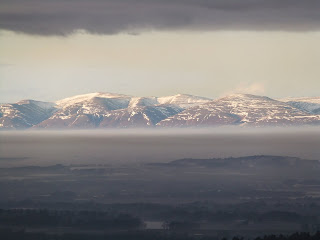Why does stuff have mass? One would have thought it just does, but wow, there is a reason that things bind together, to make 3D stuff. Apparently the Higgs particles are part of the answer. What they won't answer is the question why there is stuff at all, because that question can be applied to the Higgs particles. Questions about ultimate origins of anything, including the particles with no mass, which would whizz about at the speed of light forever were it not for the Higgs particles, still remain. Scientists are still scratching their heads about gravity, dark matter, anti-matter and matter and the relationship between these last two. Isn't theoretical physics wonderful?
In the spiritual realms, the great question is, why is there evil if an all powerful perfectly good God exists? The traditional answer from the Christian stable has to do with the gift of love and free will. Love, which I believe is the divine attribute alluded to in Genesis 1.26, needs free will to be love at all. Free will is the very thing which can undo love, by choosing not to. Not even God can work logical impossibilities, like making love independent of free will. The consequence of the choice to depart from the high ground of love is charted in Genesis Chapter 3. But some like Martin Luther, see in that chapter a promise to fix at least the damaged relationship between people and God: Ch3.15, where God, speaking to the Serpent says that the offspring of the woman will crush his head, while he will strike at his heel. Some see this as a promise to deal with the power of evil and as alluding to Jesus Christ. Admittedly this is hotly disputed. I like to read it as the instant response of a distraught God to the catastrophic consequences of sin. I hear him say, "I will fix this" in that moment. Christmas in my opinion, is to theology what the Higgs boson might be to Theoretical Physics. Christ has come. God keeps his promises.
In the spiritual realms, the great question is, why is there evil if an all powerful perfectly good God exists? The traditional answer from the Christian stable has to do with the gift of love and free will. Love, which I believe is the divine attribute alluded to in Genesis 1.26, needs free will to be love at all. Free will is the very thing which can undo love, by choosing not to. Not even God can work logical impossibilities, like making love independent of free will. The consequence of the choice to depart from the high ground of love is charted in Genesis Chapter 3. But some like Martin Luther, see in that chapter a promise to fix at least the damaged relationship between people and God: Ch3.15, where God, speaking to the Serpent says that the offspring of the woman will crush his head, while he will strike at his heel. Some see this as a promise to deal with the power of evil and as alluding to Jesus Christ. Admittedly this is hotly disputed. I like to read it as the instant response of a distraught God to the catastrophic consequences of sin. I hear him say, "I will fix this" in that moment. Christmas in my opinion, is to theology what the Higgs boson might be to Theoretical Physics. Christ has come. God keeps his promises.






